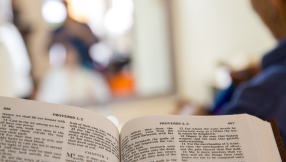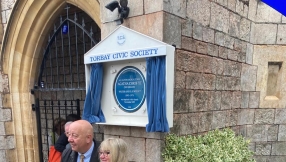
On 14 August a letter organised by the Christian think tank Theos was published in Times Higher Education. The letter expressed concern about the steep decline in the number of Theology and Religious studies courses on offer in Higher Education institutions in England and Wales.
This letter, which has achieved a fair amount of publicity and can be read in full here, has seventy-five signatories, representing different academic institutions and different religious faiths. The most prominent of the signatories is the former Archbishop of Canterbury, Dr Rowan Williams.
I have spent the whole of my life since I first went up to Oxford as an undergraduate in 1981 studying, teaching and writing theology, and I share the signatories’ concern about the decline in the availability of courses in theology. However, If I had been asked to sign the open letter I would have declined to do so. In this article I shall explain why this is the case.
The basic thrust of this letter is that theology and religious studies have a twofold social benefit. First, courses in theology and religious studies equip ‘the citizens of tomorrow’ with the tools needed to navigate a future which looks ‘increasingly complex, diverse and pluralistic’ and in which people will need to be able to ‘wrestle with moral, ethical and spiritual challenges and ideas well.’ Secondly, courses in theology and religious studies equip students with skills for both ‘service-oriented careers’ and other forms of employment.
The reason I would have declined to sign this letter is because it seems to me that there are two serious problems with the argument which it puts forward.
The first problem is that the letter fails to show that the social benefit potentially delivered by departments of theology and religious studies could not be delivered equally effectively by other departments within the higher education sector, such as departments of philosophy, ethics, history, politics, sociology, literature, or law. Nor does it show that there is a need that can only be met by the teaching of theology and religious studies and, thus, that money should be spent on such teaching when money for higher education is in short supply.
The second and more fundamental problem is that the letter leaves God out of the picture entirely. God does not get any mention at all. From the standpoint of traditional Christian theology, this means that the letter totally misses the point of why theology matters.
As Alister McGrath correctly notes in his book, Christian Theology An Introduction, the study of theology has traditionally been understood as ‘discourse about God’ (which is the meaning of the Greek word ‘theologia’ from which the English word ‘theology’ is derived).
As McGrath goes on to write: ‘Theology was understood as systematic analysis of the nature, purposes and activity of God. At its heart lay the belief that it was an attempt to, however inadequate, to speak about a divine being, distinct from humans.
‘Although theology was initially understood to mean the doctrine of God, the term developed a subtly new meaning in the 12th and 13th centuries as the University of Paris began to develop. A name had to be found for the systematic study of the Christian faith at university level.
‘Under the influence of Parisian writers such as Peter Abelard and Gilbert de la Porree, the Latin word theologia came to mean the discipline of sacred learning embracing the totality of Christian doctrine, not merely the doctrine of God.’
To put it another way, theology has traditionally meant the study of who God is, namely God the Father, God, the Son and God the Holy Spirit, what God has done, is doing and will do, and how human beings can be properly related to God.
Furthermore, because this is the primary means by which we know about God, theology has been based upon the teaching of the Scriptures of the Old and New Testaments and the witness borne to this teaching by the orthodox Christian theological tradition summarised in the Creeds and other confessional statements produced by the various different Christian churches.
In our modern, and largely secular, Western Society the question that inevitably arises is why it matters that theology understood in this sense should be studied. The simple answer is because the knowledge of God, which theology provides, is of vital importance to all human beings.
Why this is the case is helpfully summarised by Bobby Jamieson in his excellent new study of the biblical book of Ecclesiastes, Everything is Never Enough. Jamieson explains that Ecclesiastes, written by someone called ‘the teacher’ (in Hebrew Qohelet) can be understood as presenting the human path to happiness as being like a three storey building.
He writes: ‘Each level of Ecclesiastes’ three storey building reveals a crucial part of the path to happiness. On the ground floor, as we discovered in the first part of this book, Qohelet bangs his head on the immanent [this worldly] frame. He finds and laments the limits of everything that promises happiness here below. Only by realising that every earthly good is finite and fleeting can you begin to enjoy any of them rightly …
‘As we saw in the book’s second part, the view from Ecclesiastes’ second storey shows that life itself is a gift, and so is every good thing in it … Happiness comes from receiving the gift and recognising the giver.
‘The view from Ecclesiastes’ third storey looks clear past the immanent frame. Up there Qohelet directs your gaze up and away from the limits of this world and your life. Because God alone is the transcendent framer, you should revere him and live for him. Because God alone gave you life, he is the final authority on what it means to live well.
‘Happiness comes from knowing God, submitting to God, and living for God. One day, for all who trust in Jesus, happiness will come from living not just for God but with God in a world perfectly remade by God.’
What Jamieson writes here is a brilliant summary not only of the message of Ecclesiastes, but of the traditional Christian worldview. If one accepts this worldview then it becomes clear exactly why theology, understood as the study of God’s being and action and how to relate properly to him, is of vital importance.
As Augustine observed in his book, The City of God, ‘all men desire happiness.’ They are correct to do so, because God gave his human creatures the gift of life that they might be happy. However, true and lasting happiness can only be achieved, as Jamieson notes, not though clinging on to the goods that this world provides, but through ‘knowing God, submitting to God, and living for God.’ Living in this way is only possible for those who put their trust in God the Son, Jesus Christ, and for those who do this there is the promise of living happily with God forever in the world to come.
It is because Christian theology, and only Christian theology, tells us this, that the study of Christian theology is of more importance than any other field of study. It is why theology was traditionally seen as the ‘Queen of the sciences.’
All other subjects that students in higher education study can be seen as potentially contributing to human happiness by improving the lives of the students and of wider society in a variety of different ways. It is because they do this that they are worth studying. However, only theology can tell you about the true and lasting happiness that comes from a right relationship with God through Jesus Christ, which is in the end the only form of happiness that truly matters.













